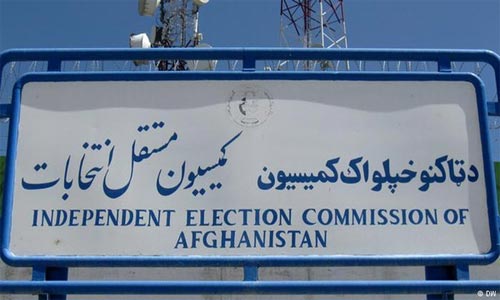As a first ever move in democratic history of the country, the new members of the electoral commissions were elected and had them sworn to run the two main electoral institutions of Afghanistan – the Independent Election Commission and the Independent Electoral Complaints Commission. Their oath and introduction ceremony were formally held in the presidential palace in presence of government officials as well as media representatives. Among them, seven individual have been chosen as commissioners of the Election Commission, five individual as Electoral Complaints Commissioners and two other as chairmen of the secretary of the two commissions. Initially, there were 81 candidates for whom 17 presidential candidates voted at a gathering in Presidential Palace on Friday, March 1.
During the ceremony, the president warned the new Commissioners of Electoral Commissioners that any violation of law and misuse of their duties was considered as a serious crime under the newly modified election law and would be prosecuted by the country judicial system. Mr. Ghani called on the electoral commissioners to carefully do their jobs and create quarantine system to prevent corruption and misuse of duties. He added that all commissioners would be quarantined. He also called the commissioners, “After this, any communication with the parties should be discontinued; otherwise it is a kind of violation.”
Meanwhile, Abdullah Abdullah, the country’s chief executive officer, urged the commissioners to prepare for the timely holding of presidential elections, and as soon as possible announce the results of the parliamentary elections. He said that holding presidential election never means belittlement to the peace process but respect to the people’s will. He added that the new commissioners of the electoral commissions should rebuild the people’s confidence in the elections and the electoral bodies.
There was no doubt that former members of the electoral commissions should have gone to their homes. There was also a complete consensus that they should be held accountable for their poor performance in regard to the latest parliamentary elections. They had to be dismissed from their jobs, but also deserve to be perused by the judicial institutions. Although there were a few among them who were relatively experienced and remained committed until the end but the general outcome of electoral commissions and numerous mistakes and weaknesses caused to sack all from their official responsibilities. Therefore, as frequently demanded by public opinion, people expect to openly see they undergo a fair trial.
Anyway, what is very interesting and new is discussion about how the new commissioners were selected. The electoral commission members were introduced by political parties and civil society organizations that were linked to the elections and finally elected by votes of the presidential candidates. Though this mechanism was based on the newly modified electoral law, it was somewhat a new and had not been experienced anywhere for choosing the leadership of electoral commissions. That’s why; this unique way has caused many questions and uncertainties in the public opinion.
May be, there were some ambiguity whether this selection method was in accordance with the rules and general spirit of the ruling law or not but in practice, given the atmosphere of distrust in the country’s political arena, it was an important step and good initiative by the government leadership to manage the conflicts. The situation was so bad that the problems of illegal practices and misuse of powers were so widespread by the senior electoral commissioners that there was a kind of overt anarchism in holding elections, as well as in recount process of the votes. The abuse of senior executives and leadership of electoral commissions were so rampant that everybody had a story in their local meetings about them. The disappointing acts of the electoral commissioners were so dramatic that no one could have the slightest defense of electoral commissions.
The situation was so critical that all the means of public trust and resources for treating common values had been completely disrupted, and nobody had confidence in the election. For the first time, the foundation of this distrust was laid in the 2009 parliamentary elections and then the controversial presidential election of 2014. Unfortunately, the incomplete and controversial parliamentary election held on October 20, 2018, inflicted its latest blow on the public confidence which disappointed the whole people. Therefore, the government decided to entrust all authorities to the political parties and to rivals of the president in order to gain public confidence and have no interference in the election, except for the use of a solitary vote like other 17 candidates. This new way, though initially created some doubts but it turned out to be solely for trust building of political parties and civil society organizations.
Based on this analysis, everything now depends on the new leadership of the electoral commissions. Each member is indirectly affiliated with a political faction and, in fact the authority of electoral commissions is relatively distributed among all political factions. Each of political party and candidates has inflauence on electoral commissions so far as proportional to its political presence in the country. It is expected that the new leadership of the electoral commissions will re-examine all issues related to the elections and the electoral procedure with firm commitment to the supreme interests of the country. They need to establish new procedures appropriate to the conditions of Afghanistan and honestly act upon them. This is the only mission of the new members of the electoral commissions.
Home » Opinion » Trust Building: The Most Important Mission of the New Members of the Electoral Commissions
Trust Building: The Most Important Mission of the New Members of the Electoral Commissions
| Mohammad Zahir Akbari

